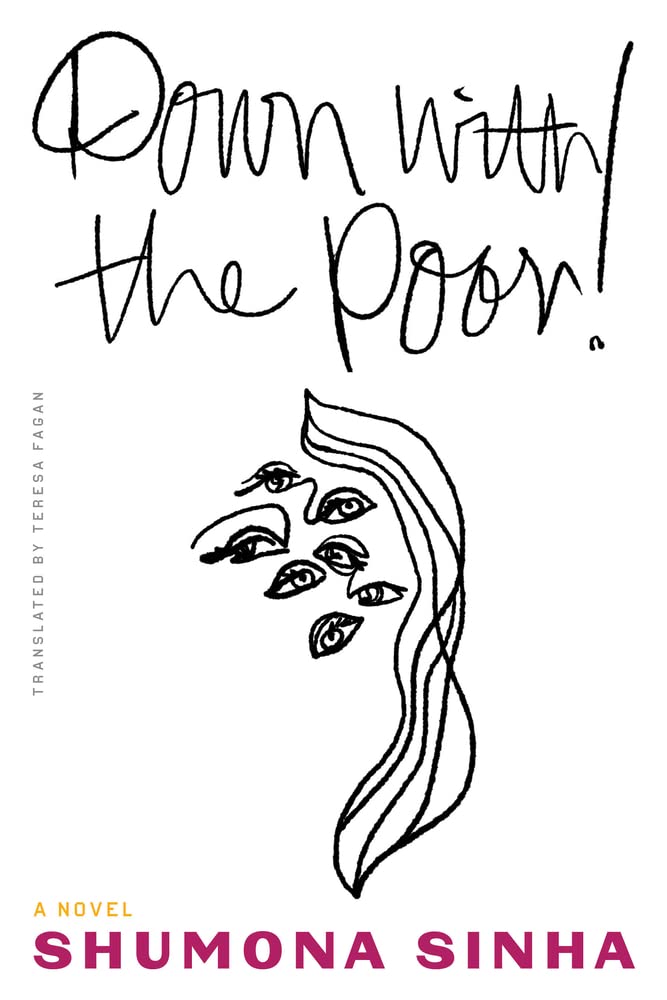What do you think?
Rate this book


200 pages, Paperback
First published August 25, 2011
Suddenly, -- Oh miracle! Oh delight of the philosopher who verifies the excellence of his theory! -- I saw that antique carcass turn over, straighten up with a force I would never have suspected in a machine so peculiarly unhinged. And, with a look of hatred that seemed to me a good omen, the decrepit bandit flung himself on me, blackened both my eyes, broke four of my teeth, and, with the same tree branch beat me to a pulp. -- By my forceful medication, I had thus restored his pride and his life.
The central tenets of our list include, but are not limited to:
- Women’s voices,
- A focus on short works, which we believe make for an ideal introduction to an author’s oeuvre,
- The exploration of trans-genre and non-linear narratives, following in the footsteps of the Modernists,
- A particular affinity for narratives concerned with cinema, the visual arts and music.
I listened to their stories composed of choppy, cut-off, expectorated sentences. They memorized them and regurgitated them in front of the computer screen. Human rights do not mean the right to escape poverty. In any case, you didn't have the right to utter the word poverty. You needed a more noble reason, one that would justify political asylum. Neither poverty nor avenging nature that had devastated their land could justify their exile, their mad hope for survival. No law allowed them to enter here in this European country if they didn't have political, or even religious reasons, if they didn't demonstrate the serious consequences of persecution. So they had to hide, forget, unlearn the truth and invent another one: the tales of migrating peoples; with broken wings, filthy, stinking feathers; with dreams as sad as the rags on their backs.
In many ways, the poem is deeply resistant to interpretation, and is meant to be. The surface of demonic hysteria and sadomasochism is a pokerfaced mask, concealing a range of provocative ironies. Against the background of the spectacular collapse of ideologies of well-meaning benevolence in the insurrections of 1848, Baudelaire’s poem probes all the weak points of the philanthropic: the egoism in altruism (‘I am such a nice person’); the bad faith of charitable giving as alibi, letting people off the hook of finding real solutions to inequality; the malicious thought that a relation of equality established through the exchange of violence is preferable to the humiliating servitude of supplicant beggardom, the smile, the deference, the politeness, without which the needy rarely accede to the status of deserving.
Life is a monologue. Even when you think you're making conversation, only a stroke of luck allows two monologues to intersect; perhaps taken by sur-prise, they halt in front of each other. In the offices questions and answers intersected but remained isolated. The men stuck to their monologues. The women officers shot question arrows almost automatically, lethargically and without a target. A few rudimentary questions later, the tension would rise among us. The tension sometimes rose so high that, long after having completed an interview, everything trembled deep inside me, throbbed like the engine of an idling car
The offices where the raggedy petitioners came to plead their cases, dragging their feet, holding babies, but usually alone, were located in barren areas, beyond the city limits. Where the wind picked up. The wind picked up and died down and picked up again. Dust flew and spun around. The battlefield flared up. The sound of the RER, its corroded screeching, steel against steel, its crisscrossing rails stretching into the horizon, to even more barren zones, the sun bursting onto the tracks, factories rising up against the white sky.
Coming out of the metro, at an intersection, I was lost. No landmark. Around the square there were shabby reproductions of the same cheap and hideous merchandise. …… . The entire neighborhood was an open-air bazaar, an open garbage bin …. The merchants had spread out their wares everywhere, overflowing onto the sidewalks, into the middle of the street, as if the many shops around the square weren't enough. Clothing, bags, suitcases, shoes, and a pile of shapeless objects ….. It was a ghetto. Another country. The one I had managed to leave behind. It was impossible to believe there was still a luminous city not very far from here. The metro had brought me to the end of the tunnel at the edge of the world into this land of rubbish overrun by outcast jellyfish ………………… . If I could have, I would have turned around, taken the first metro and returned to my own neighborhood, where the smell of good baguettes blended with that of yellowed books placed in boxes in front of shop windows. There on the streets dogs walk with their owners, the café owner jokes with the couple of daily customers, brown-and-green cast-iron tables and chairs lean on the slope of the sidewalk, red-and-white checkered tablecloths flutter in the breeze. I simply wanted to erase my character from this ghetto cartoon.